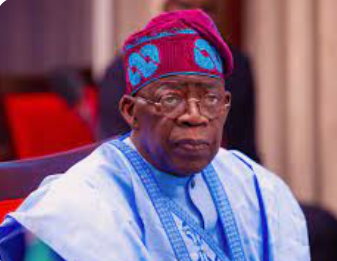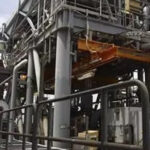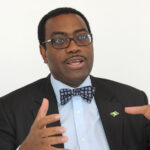
With the ECOWAS lifting economic and travel sanctions imposed on Burkina Faso, Guinea, Mali and Niger, STEPHEN ANGBULU examines the long-term implications for the sub-region and Africa and if this is enough to win back the trust of the estranged nations
On Saturday, February 24, 2024, 12 West African Presidents and Heads of Government marched into Nigeria’s State House Conference Centre, Abuja, to discuss their next move on Burkina Faso, Guinea, Mali and Niger.
It was the fourth extraordinary summit of the ECOWAS Authority of Heads of State and Government since the military gained control of Niger Republic. Leading the discussions was Nigeria’s President Bola Tinubu, who assumed chairmanship of the regional bloc in June 2023.
Unilaterally, they agreed to lift some economic and travel sanctions imposed on these countries as a punitive response to the unconstitutional change of government.
The President of the ECOWAS Commission, Dr Omar Touray, announced the resolutions in a communique, saying, “The Authority resolved to lift with immediate effect the following measures imposed on the Republic of Niger: Closure of land and air borders between ECOWAS countries and Niger to be lifted, no-fly zone of all commercial flights to and from Niger is to be lifted and suspension of all commercial and financial transactions between ECOWAS member states and Niger is to be lifted.”
The authority also resolved that the “freezing of all service transactions, including utility services, is to be lifted. The freezing of assets of the Republic of Niger in ECOWAS Central banks is to be lifted.
“Freezing of assets of Niger State and the state enterprises and parastatals in commercial banks is to be lifted. The suspension of Niger from all financial assistance and transactions with all financial institutions, particularly ECOWAS Bank for Investment and Development and BIRD, is to be lifted. Travel ban on the government officials and their family members is also to be lifted,” Touray read on.
The Authority also demanded the release of “former President Mohammad Bazoum (of Niger Republic),” insisting that the Nigerien transition authority provides an acceptable timetable to restore constitutional order.
It was the first time since the coup that the Authority prefixed Bazoum’s name with “former president.” Although Touray said the sanctions were lifted for humanitarian reasons, in the spirit of Lent and Ramadan, pundits argue that ECOWAS is finally acquiescing to reality after playing tough for several months.
A back story
The civilian governments of the four nations, all members of the Economic Community of West African States, had fallen into military hands in too quick succession within only two years.
On August 18, 2020, Col. Assimi Goïta and his military force, the National Committee for the Salvation of the People, seized power from former Mali President Ibrahim Keïta. He would repeat the power stunt in another coup in May 2021, this time overthrowing Bah N’daw, a retired military officer elected to lead an 18-month transition period. He has remained in office ever since, promising to restore democratic rule.
On September 5, 2021, the Guinean military, under Col. Mamady Doumbouya, ousted President Alpha Condé after gunfire in the capital, Conakry. The military dissolved the government and Doumbouya, the coup announcer and member of Guinea’s Special Forces Group, became president on October 1. He, too, promised to return the country to civilian rule by the end of 2024.
In 2022 alone, Burkina-Faso experienced two coups d’état. In January of that year, the military overthrew the elected president, Roch Marc Christian Kabore, installing Lt. Col. Paul-Henri Damiba as interim leader. However, Damiba was overthrown nine months later by Captain Ibrahim Traoré, who remains in power to date.
Niger joined the league of junta-led West African nations when in June 2023, the military detained President Mohammed Bazoum as General Abdourahamane Tchiani, head of the Presidential Guard since 2011, appeared on state television to declare himself as the “president of the National Council for the Safeguard of the Homeland.”
As expected, the ECOWAS condemned each coup as they emerged and imposed economic sanctions that isolated the military-led states. It suspended all commercial and financial transactions between its current members and the junta-led states, freezing all their assets at the ECOWAS Central Bank.
In August 2023, Nigeria shut its borders with the Niger Republic, stalling legal transportation of persons and goods between both regions. Nigeria also cut electricity supply to Niger.
No longer seeing a future within the bloc, Niger, Mali and Guinea, in January 2024, announced their withdrawal from the ECOWAS, saying its “illegal sanctions” were harming their people.
They also alleged that the bloc had fallen under the influence of foreign governments whose interests, they said, were far from the peoples.’’
Although ECOWAS’ rules mandate a withdrawing member state to issue a year’s notice, the junta declared their secession as immediate. It was the first withdrawal nearly 24 years after Mauritania pulled out in December 2000.
On September 16, 2023, ministers from Burkina Faso, Mali and Niger announced the formation of a confederation called the Alliance of Sahel States. The ASS is a counter-regional organisation, said to be a mutual defence pact among the countries.
In an interview aired on state television, Niger leader Gen. Tchiani vowed that his country would not rejoin the ECOWAS. Tchiani also vowed that none of the three ASS nations would rejoin the bloc.
Gen. Yakubu Gowon intervenes
If the signs were not clear, now they are. The 49-year-old regional bloc is suffering a mid-life crisis that could mar it forever.
The junta accused the ECOWAS of veering “away from the ideals of its founding fathers and pan-Africanism.” Therefore, the last line of help could be the only surviving founding father, General Yakubu Gowon.
As the only living person who oversaw the creation of ECOWAS on May 28, 1975, Gowon held closed-door talks with the ECOWAS chairman, President Bola Tinubu, on February 21. Days earlier, the 89-year-old had written an open letter to the ECOWAS, expressing his concerns about recent developments. He asked “all West African leaders” to “immediately consider the lifting of all sanctions that have been imposed on Burkina Faso, Guinea, Mali and Niger.”
Gowon also urged the three withdrawing nations to return. He urged all 15 member states to convene a summit to discuss the future of the Community, its regional security and stability, as well as the roles of the international Community given the current geopolitical setting.
“Therefore, on behalf of all the founding fathers of the Community and myself, I urge the ECOWAS Authority of Heads of State and Government, including the leaders of Burkina Faso, Mali and Niger, to put aside their differences and reunite for peace, stability and prosperity of our sub-region.
“ECOWAS is more than a coalition of States; it is a community established for the good of our peoples, based on shared history, culture and tradition.
“Neither my generation nor present or future generations will understand or forgive the breakup of our Community,” Gowon’s letter read. He achieved the first part, the lifting of sanctions. But can his intervention reunite the divided bloc?
Two to tango
Nearly three weeks after Touray’s announcement, Nigeria, on March 13, opened its land and air borders with Niger Republic.
For the two countries who relied heavily on each other for economic and social activities, this was good news for those with some skin in the game, especially the border communities.
The Nigeria-Niger border stretches 1,608km, from Kebbi, Sokoto, Katsina, Jigawa, Yobe to Borno states. However, reports show that while the Nigerian side of the borders were flung open, Niger, like an offended brother, kept its doors shut.
For instance, reports say in the border town of Kongolam, Katsina State, Nigerien Police blocked their side of the border with stones and sand. In the Maigatari border of Jigawa State the story is the same. Though the Nigerian border was reopened the next day, Niger Republic’s security operatives kept theirs closed. As of Friday, the same is true of the borders in Kebbi and Sokoto.
The ECOWAS Commission President, Touray, also announced new steps to “lift the sanctions regarding the recruitment of Malian citizens in statutory and professional positions within ECOWAS,” adding that the Authority is “inviting all four countries to attend technical consultative meetings of ECOWAS going forward.”
He explained further, “The Authority has also resolved to lift financial and economic sanctions on the Republic of Guinea.
“…to invite Burkina Faso, Niger, Mali, and Guinea, to attend the technical and consultative meetings of ECOWAS as well as all security-related meetings.
“The authority calls on ECOWAS institutions, member states, the United Nations Mine Action Office and other regional institutions to implement this decision.”
While the economic and travel sanctions had been lifted, Touray said, “targeted sanctions as well as political sanctions…remain in force.” This entails the “limited ability to attend ECOWAS Summit as well as ministerial sessions.”
Ex-Diplomats Speak
While lauding the ECOWAS’ for lifting the sanctions, a former Nigerian Ambassador to Singapore, Mr. Ogbole Amedu-Ode, expressed worry that the estranged nations may have gone too far to return to the bloc.
He said, “It is a positive development that ECOWAS deemed it fit to reconsider and review its rather harsh position on the three countries where there was an unconstitutional change of government. It means there will be freedom of movement of people’s goods and services across the borders of these three countries and the rest of ECOWAS.
“I hope and I pray that the regimes have not gone too far to come back to the fold because we can only understand this from the perspective of the wider global geopolitical power play.
“The attraction for them—Burkina-Faso, Niger and Mali—is to get out of France’s sphere of influence. And France is a constituent of the Western Hemisphere. We’re aware of the tussle between the rising powers of the eastern hemisphere and the dominant powers of the western hemisphere. And I’ve said this before and I’ll say it again, that the sun is rising in the East, but that does not mean that the sun has set on the West.”
On his part, a former Nigerian High Commissioner in Botswana, Mr. Okubotin Cocodia, called on existing member states and the withdrawing states to sincerely seek long-standing solutions and strengthen each other against predatory neocolonialists.
“Basically, I think what the government did is the right thing. Now, they should look for a long-standing solution to the problem. They should push for mutually beneficial relations with their erstwhile colonial power and, above all, with the rest of ECOWAS, should coordinate and, better still, synchronise its policies.
“If we take the cutting of power, for example, that is also in violation of extant agreements with Niger republic.
“We should be working towards enhancing infrastructure, road and rail infrastructure, power infrastructure, joint nuclear cooperation and fight off the spread of small arms and light weapons,” said Cocodia.





